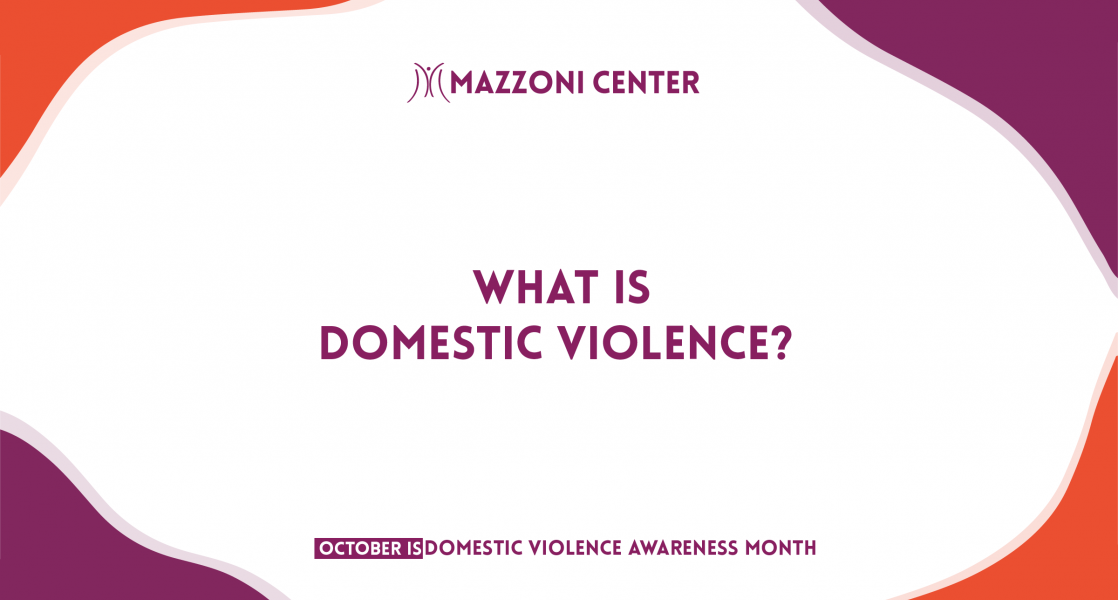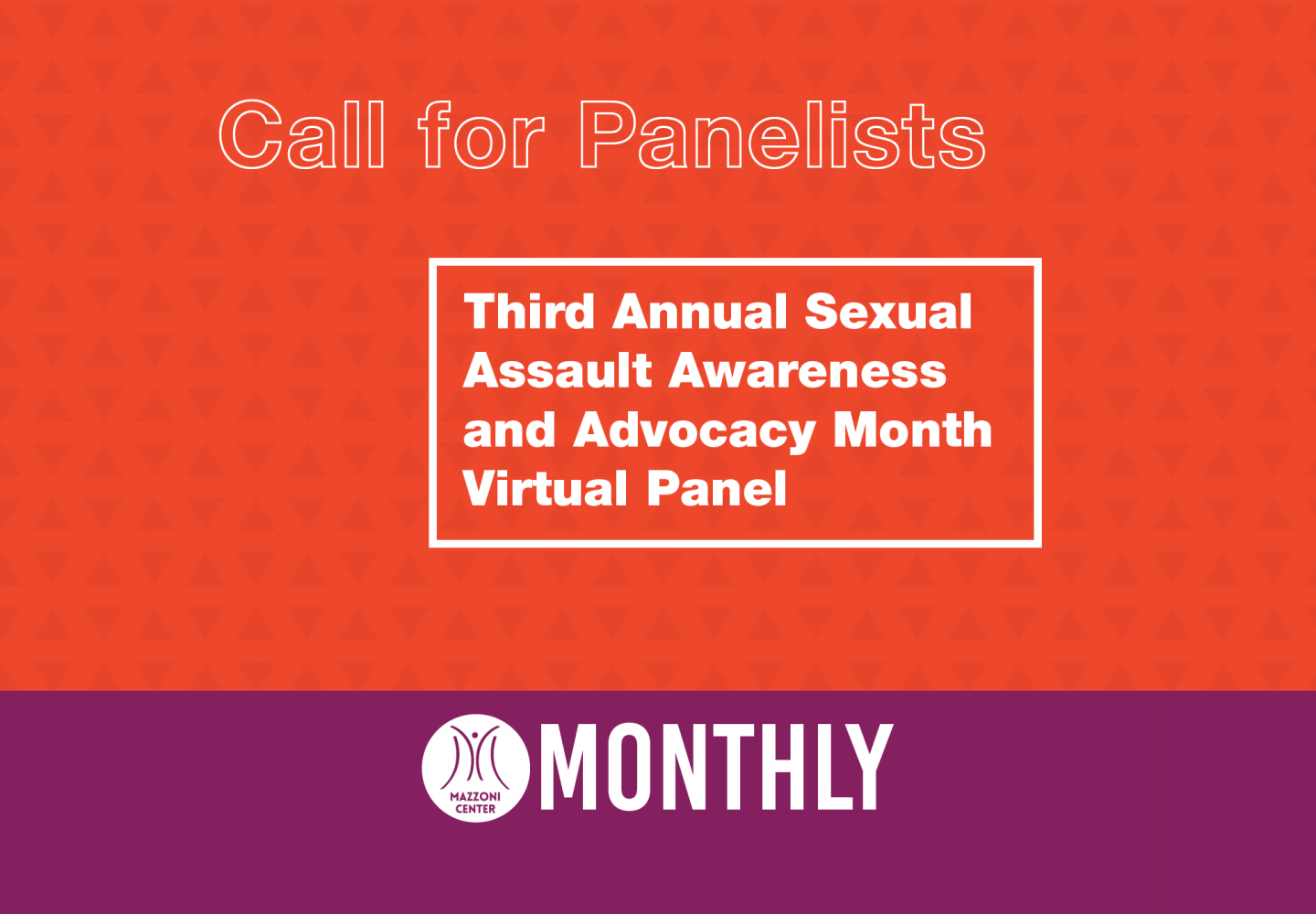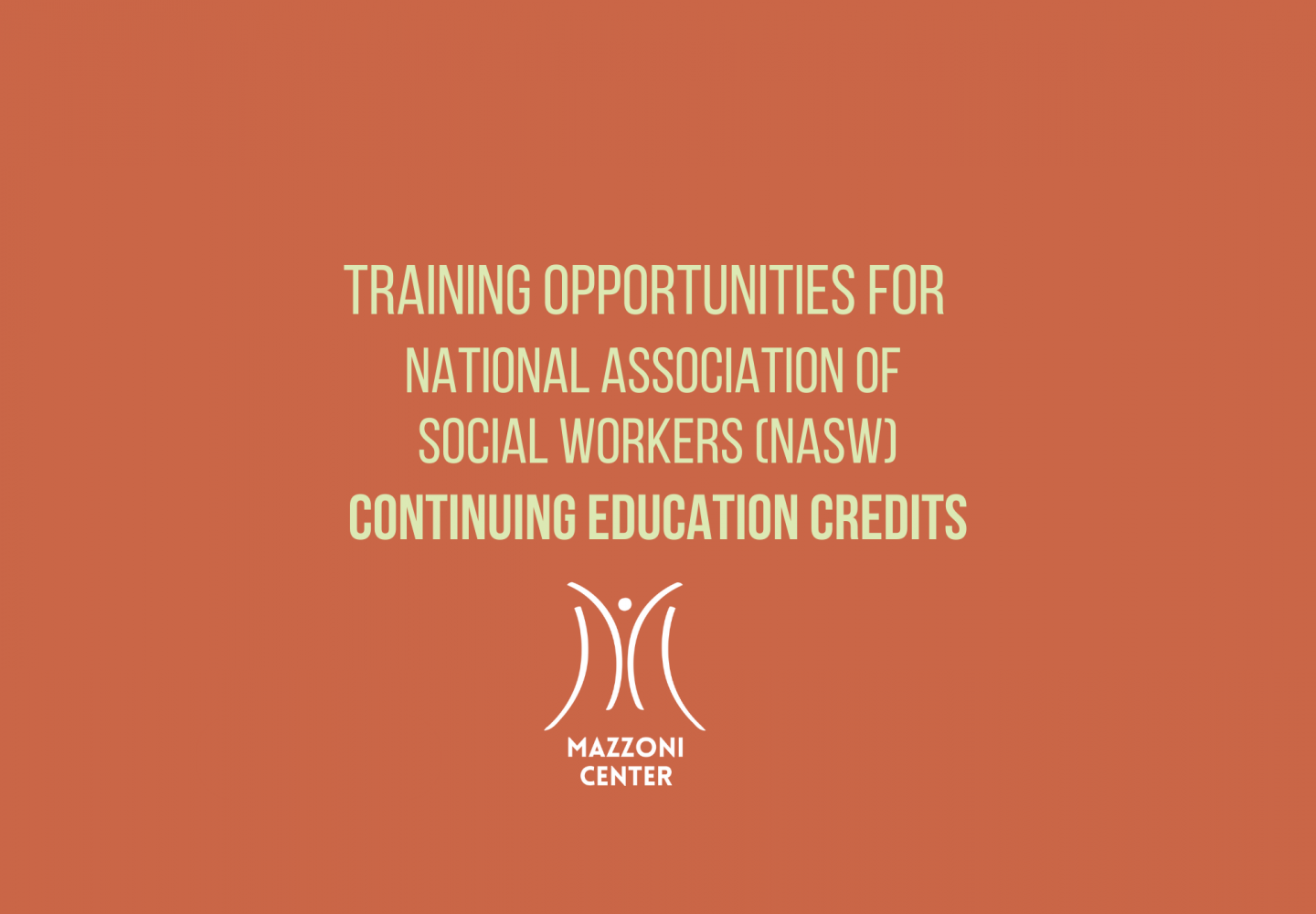What is Domestic Violence? | DVAM
What is Domestic Violence? | DVAM

This month, join Mazzoni Center on Mondays for Domestic Violence Awareness Month blog posts. We will be talking through how domestic violence affects the LGBTQ+ community, relationship red and green flags, boundaries, and how to support survivors. Our posts were created to both further awareness of DV and to help folks think through what a healthy relationship looks like to them, all through an LGBTQ+-affirming lens. If you have experienced DV, or support someone who has, there are resources available for you. Call the 24-hour free and confidential Philadelphia Domestic Violence Hotline at 1-866-723-3014 for crisis intervention, safety planning, resources, and referrals.
Domestic violence, also known as intimate partner violence (IPV), is “the willful intimidation, physical assault, battery, sexual assault, and/or other abusive behavior as part of a systemic pattern of power and control perpetrated by one intimate partner against another” (NCADV). Domestic violence is commonly perceived as something that primarily affects heterosexual and cisgender relationships and people, and because of this many organizations that serve survivors of interpersonal violence target their survivor services at cisgender, heterosexual women. The unfortunate truth is that the lifetime prevalence of IPV in LGBTQ+ communities is equal to or higher than in straight and cisgender communities and the lack of understanding regarding the unique ways IPV shows up in queer and trans relationships means LGBTQ+ survivors are not getting the help they need.

The 2010 National Intimate Partner and Sexual Violence Survey (NISVS) found that 44% of lesbian and 61% of bisexual women had experienced rape, physical violence, and/or stalking by an intimate partner in their lifetime, in comparison to 35% of heterosexual women. The survey also looked at rates of IPV for men and found that 26% of gay men and 37% of bisexual men had experienced the violence listed above, in comparison to 29% of heterosexual men. When we look specifically at the rates of IPV for trans folks, the US Transgender Survey of 2015 found that 54% of trans folks had experienced some form of intimate partner violence, with ¼ having experienced severe physical violence (in comparison to 18% of the general US population.)
The LGBTQ+ community also faces unique challenges when it comes to experiencing IPV, including unique tactics of abuse and control. These include threatening to out a partner, belittling a partner’s identity, accusing a partner of cheating because of their sexuality, and many more. IPV shows can show up within LGBTQ communities very similarly to cisgender and straight folks when you consider that both LGBTQ+ and straight and cisgender folks experience intimidation, threats, physical abuse, emotional abuse, gaslighting, and other types of abuse. For LGBTQ+ folks, though, there are unique elements that target queer and trans identity.
LGBTQ+ folks also face significant barriers that their straight and cisgender peers do not have to consider when accessing supportive services. LGBTQ+ folks may have to worry about the risk of outing themselves when disclosing domestic violence, which can be a safety concern. Some folks in the community, particularly gay and bisexual men and trans women, may not be allowed in shelters due to incorrect assumptions about them being perpetrators. IPV providers may dismiss the seriousness of violence that occurs in same-gender relationships due to stereotypes about gay and lesbian relationships because naturally less violent or disbelief that same-gender relationships can have elements of power and control that providers learn in the context of heterosexual relationships. Research also shows that LGBTQ+ survivors are much less likely to seek orders of protection, and transgender survivors are more likely than cisgender survivors of domestic violence to face threats, intimidation, harassment, and police violence within interpersonal violence.
We recognize Domestic Violence Awareness Month this October at Mazzoni Center because we believe LGBTQ+ survivors. We believe your stories, we know that you deserve LGBTQ+ competent and affirming care, and we want all of you to be able to have safe, healthy, and happy relationships. We are doing these blog posts, Instagram awareness posts, and poster project to bring awareness to the ways interpersonal violence uniquely affects LGBTQ+ communities, to consider what healthy LGBTQ+ relationships might look like, and to discuss how best to support LGBTQ+ survivors. We know that this month is LGBTQ History month, too, and we know that the unique barriers and discrimination queer and trans folks face intimately affect their experience with IPV. We are hoping by discussing the way IPV affects the LGBTQ+ community and by envisioning healthier relationships for our trans and queer siblings, we can bring necessary attention to an incredibly important group of survivors who are often ignored in the larger domestic violence movement.
LGBTQ+ Survivors: You are not alone. If you have experienced interpersonal violence and need assistance, call the 24-hour, free, and confidential Philadelphia Domestic Violence Hotline at 1-866-723-3014 for crisis intervention, safety planning, resources, and referrals.
This project was supported by 2017-UD-AX-0011 awarded by the Office on Violence Against Women, U.S. Department of Justice. The opinions, findings, conclusions, and recommendations expressed in this document are those of the author and do not necessarily reflect the views of the U.S. Department of Justice, Office on Violence Against Women.


